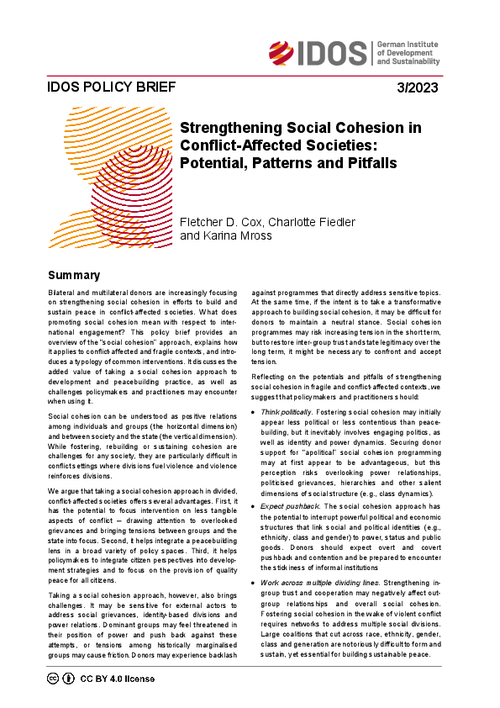How does globalization affect social cohesion?
Key facts
Other (Globalization)
Concept & measurement
Summary
This paper explores the effect of globalization on social cohesion outcomes and reviews its underlying mechanisms. I offer a framework to review the literature, in which I identify worker labour earnings, household expenditures and firm productivity as main channels through which globalization affects cohesion, trust and pro-social behaviour. Evidence points towards substantial losses in cohesion following negative globalization shocks, altering cohesion through absolute and relative changes in employment and expenditure (and the perception thereof). However, evidence is thin and inconsistent; studies are limited to effects of trade (and not FDI), study some dimensions of cohesion (but not others), and frequently evaluate negative shocks of trade on cohesion (while trade and FDI may offer gains to workers, households and firms, which boosts cohesion). A review of other secular or cyclical trends shows that they can account in part for changes in cohesion (e.g. automation), while globalization shocks have aggravated particular trends (e.g. inequality). From this I make that, when setting policy, it is important to address the relative losses from globalization shocks, incorporate the economic costs of social repercussions, and take on underlying cyclical or secular trends that may amplify globalization shocks.




